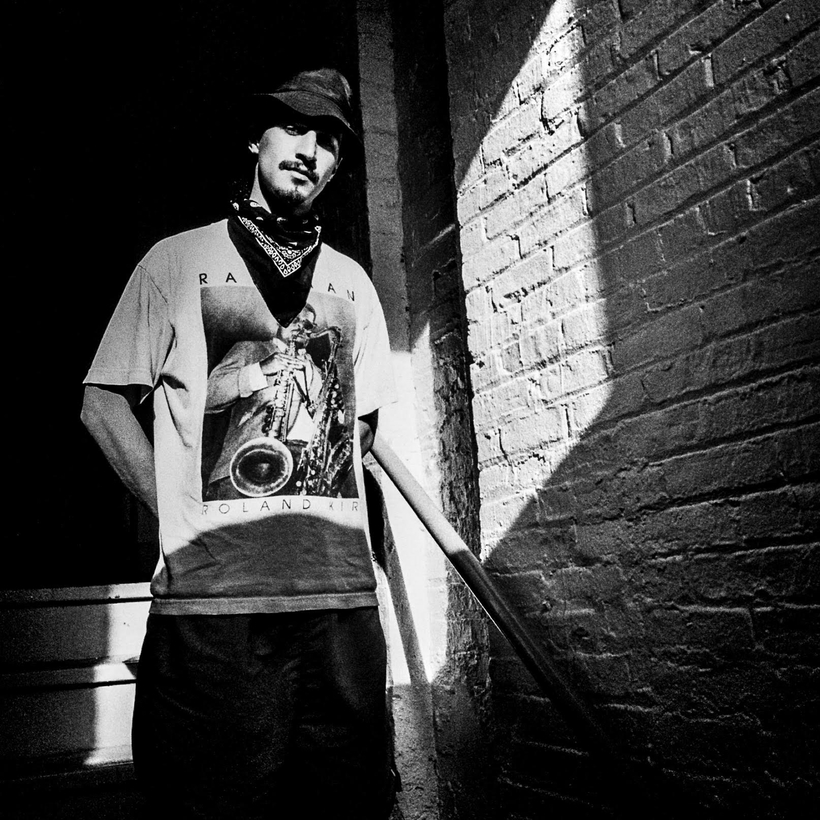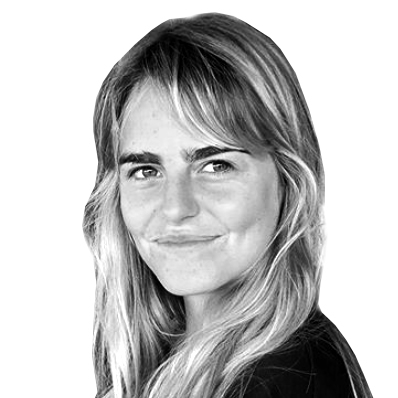Most days you’ll find saxophonist Isaiah Barr, 27, at the Shed—not the Hudson Yards performing-arts center, but a room on the roof of a building in Chinatown, directly under the Manhattan Bridge. He might be painting, playing the sax, or composing a song.
Barr founded Onyx Collective, which is headquartered on that roof, with his best friend, Austin Williamson, in 2014, when they were still teenagers. Named after the East Village tenement buildings where Barr’s uncle lived in the 1980s, the collective started as a loose group of musicians. Now it encompasses a record label, a production house, a fashion brand, and an online radio station called NYXO. The studio doors are open 24-7 to downtown artists. “There’s no point for the arts to be this segregated thing,” he says.
Barr grew up a few blocks away, on the Lower East Side, where music was ubiquitous on the street and at home. “My mom was into classical music, rock ’n’ roll, and jazz,” he says. “My father was really into jazz and funk, and R&B. They played cassettes, CDs, and vinyls all day.”
He first picked up a saxophone when he was eight years old. “I wrote down notes and I just started playing,” he explains. “You can’t really start earlier than that, because you need teeth.”
When he entered his early teens, during the Napster era, Barr dropped the sax for a while, instead spending his time downloading and listening to different genres of music. For 10th grade, in 2010, he enrolled at the Institute for Collaborative Education, where Roy Nathanson, a jazz legend from the 70s and 80s, took him under his wing. Musicians Debbie Harry and John Zorn became after-school acquaintances, and Barr started playing the sax again.

“I discovered a lot from them, whether it was about theater or film or different movements in the downtown world,” he says. “They’re multifaceted human beings, not just musicians. I gravitated to their approach about artistry in general.”
He met musicians his own age, such as Williamson, in after-school jazz courses at York College in Queens. He and Williamson started booking concerts with their friends at venues around 52nd Street, which, he tells me, was called Swing Street in the Jazz Age.
In 2015, Williamson and Barr got a radio slot on the Lower East Side–based online station Know-Wave, and they started performing on-air. Their songs piqued the interest of established artists such as Princess Nokia, Dev Hynes, and Nick Hakim, all whom would eventually perform with them.
“There’s no point for the arts to be this segregated thing.”
“I mean, the word spread,” Barr says. “People started saying, ‘Yo, I wanna play with these guys.’”
As his career picked up, Barr enrolled in, and then quickly dropped out of, Purchase College. Instead of school, he started expanding his collective.
In 2016, he and Williamson started a club in Tribeca called NYXO (like their radio station). After performances, they sold T-shirts emblazoned with the Onyx Collective logo. Since then, they’ve sold their clothes at the Good Company, in New York, and Supreme in Japan. Barr has collaborated with Adam Zhu, a photographer and creative director, and Maxwell Deter, an artist, on a few capsule collections. Now, Barr tells me, “we put out cassettes, books, clothing, art pieces.”
While he and Williamson have continued to make New York–themed jazz albums, often in collaboration with other Onyx Collective musicians, Barr’s focus is shifting. Recently, he’s been busy producing and starring in a film, Xyphnophiles, directed by Mike Swoop.
While his output has changed drastically over the years, the Shed has stayed the same. “We get there, sweep the floor, clean up, light a candle or some incense, put on a record, and draw, or paint a little bit outside, graffiti, or maybe roll out a canvas,” Barr says. “Austin’s probably already practicing drums when I get there. We have fun.”
After a day of work at the Shed, Barr and Williamson often stay at the headquarters until late at night. “We talk about life a lot,” Barr says. “We drink beers and go home late.”
“We’re conversing with New York,” he says. “The city is in our sounds. It’s like the cars, the people—it’s the voices. We’re always going to be continuing on that legacy because New York is where we’re from.”
Elena Clavarino is a Senior Editor for AIR MAIL

